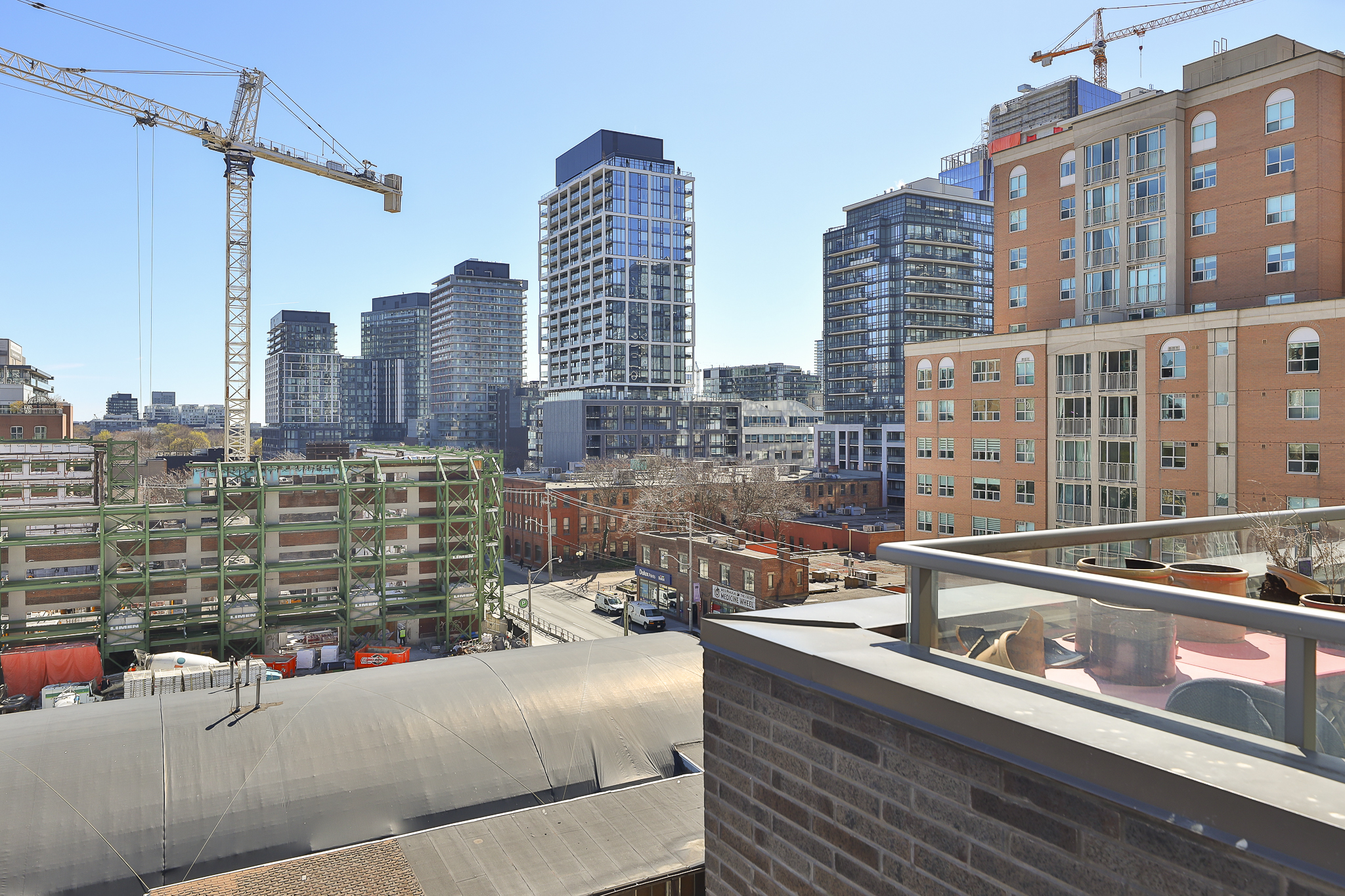As transactions fall, Toronto condo buyers find their leverage

Toronto’s condo market appears increasingly out of kilter this spring as listings swell for compact downtown units while aspiring buyers struggle to afford more generous living spaces.
In March, the segment for condos in the central 416 area code was the weakest in the Greater Toronto Area as transactions fell 15.5 per cent compared with the same month last year, according to Toronto Regional Real Estate Board data.
Christopher Bibby, broker with Re/Max Hallmark Bibby Group Realty, says the majority of listings arriving on the market recently are one-bedroom rental units of 500 square feet or less in downtown neighbourhoods packed with high-rise towers. In many cases, landlords and landladies are unloading units when mortgages come up for renewal at higher interest rates.
Some are spurred to list after tenants move out because buyers favour vacant units.
“The amount of one-bedroom units that are coming on now is overwhelming,” Mr. Bibby says, noting that the supply of condo apartments in Toronto spiked 55.3 per cent in March compared with March, 2023.
Monthly rents have been softening with increased supply in many buildings, he says, and owners face the burden of hefty carrying costs.
“It has become a far less attractive option for investors.”
Compared with March of last year, the average price of a condo in the 416 has remained fairly flat with a 0.5-per-cent dip to $729,392 in March.
The buyers today tend to be people who intend to live in the unit, says Mr. Bibby, including first-time buyers with help from parents, urban professionals and empty nesters who can now sell their house more easily than they could in the fall.
Even people who would like to buy are keeping an eye on interest rates and their own budgets, he adds.
Despite the cautious stance of buyers, March was busier than February, Mr. Bibby notes, and the most appealing condo units still sell quickly. Mr. Bibby points to a recent sale at the King Edward Private Residences, where suites often take 40 or more days to sell because condos attached to a hotel face some extra hurdles when it comes to financing.
Mr. Bibby listed a unit in the south-west corner with a view of Berczy Park with an asking price of $675,000.
In less than a week, the seller accepted an offer of $680,000 from current residents of the building. Mr. Bibby says the buyers bid above asking despite no competition from rivals. The buyers were quick to seal a deal because the view will likely never be blocked, he explains.
“You never know when a great opportunity like that will happen and people jumped on it,” he says.
Many of the units in condo towers that developers were selling in preconstruction in past years were purchased by investors who didn’t care about the floor plan, finishes or view because they had no intention of moving in, he adds.
“They have different street names but inside they feel very repetitive,” he says.
Those are the units that are hardest to sell in today’s market when many buyers are what the industry calls “end users.” Mr. Bibby has clients who are patiently waiting for an appealing unit in the $800,000 to $1.8-million range but those properties remain scarce.
“If you’re moving in, you have to really be excited and really enjoy the space,” he says. “It’s someone who is actually taking their life savings and cares about the quality.”
Sales of condos above $2-million are subdued, he adds, but may pick up as snowbirds return from the south and more downsizers sell their houses in the spring market.
Sellers who reach for an ambitious price find out very quickly that buyers have other options, Mr. Bibby says. In some cases, sellers draw more than one offer but the unit still sells below asking.
“This is the reality – this is the new pricing,” says Mr. Bibby.
During the pandemic, it was hard to find a unit downtown for less than $600,000, he points out. Recently a one-bedroom condo with a terrace at King Street East and Parliament Street changed hands around the $499,000 mark.
“There are a lot of opportunities out there,” he says. “You have a lot of negotiation leverage as a buyer.”
The year-over-year sales comparisons are likely to appear worse in the months ahead, he adds. That’s because the spring market of 2023 saw a rally leading up to a Bank of Canada rate hike that caught many people by surprise in June.
“A lot of the growth last year happened in April and May,” says Mr. Bibby.
He also warns that prices are likely to come down for one-bedroom units with the surge in supply amidst the additional taxes that many investors face – including levies on foreign buyers and vacant homes, along with the federal government’s recent proposal to change the rules surrounding capital gains on secondary properties.
An investor who is anxious to unload a unit might accept a reduced price, for example, and that becomes the new benchmark.
Royal Bank of Canada economists Robert Hogue and Rachel Battaglia say activity has largely been bogged in the more expensive markets – including Toronto and Vancouver – where unaffordability is particularly acute.
Overall supply and demand remain fairly balanced in Canada, though that measure varies by market, they add.
Mr. Hogue and Ms. Battaglia say some potential sellers may have held off listing their property in March in anticipation of stronger demand in the summer as expectations grow that the Bank of Canada will cut its key interest rate mid-year.
Looking ahead, the economists believe real estate prices will rise gradually in the coming months and then accelerate once central bank rate cuts accumulate over the second half of 2024 and into 2025.

Need advice from
Christopher Bibby
for your
property?

